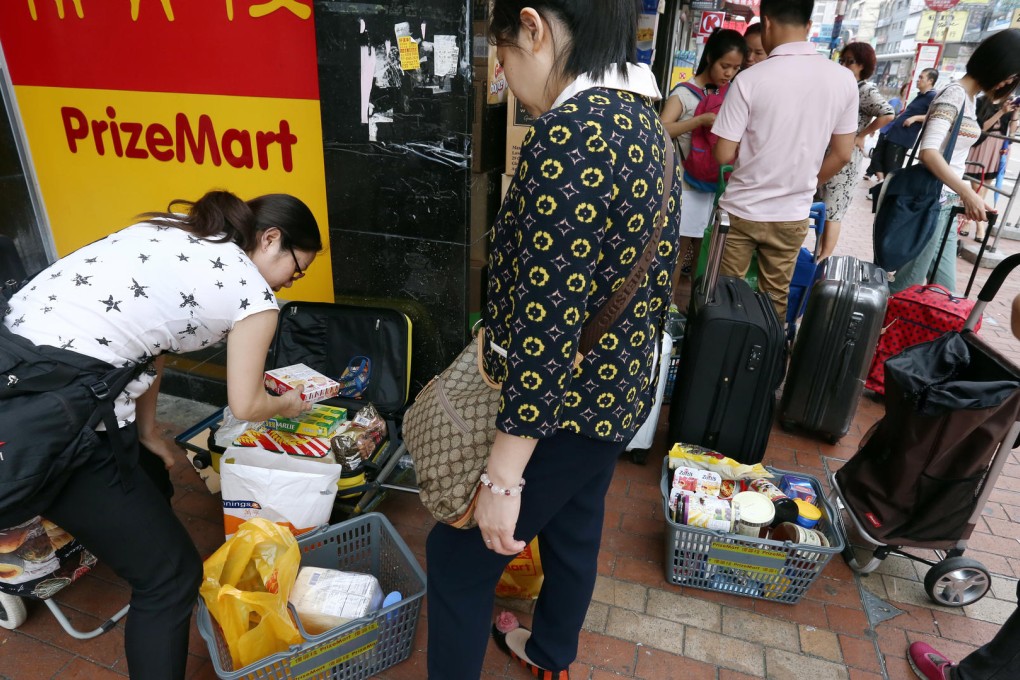Too little, too late: curbs on China visitors slammed as Hong Kong parallel trading booms
While visitors seem relaxed about new travel curbs, local residents fear it is too little, too late and shopkeepers worry about their livelihoods

Last week's decision to restrict Shenzhen residents to one trip to Hong Kong per week did little to dampen brisk sales in border towns yesterday.
Suitcases and shopping trolleys stuffed with baby milk formula and instant noodles, as well as medication, packed the pavements outside a cluster of pharmacies in Sau Fu Street, Yuen Long, for example.
Since Monday, Shenzhen's municipal government has not renewed expiring multiple-entry permits, which allow unlimited visits to Hong Kong. Instead, permanent residents can apply to visit no more than once a week.
The move - expected to slash the number of visitors from Shenzhen by 30 per cent, or 4.5 million a year - is designed to deflate tension over parallel traders, who snap up goods in Hong Kong to resell over the border.
But the full effect of the move is unlikely to be felt for six to nine months, and visitors in town yesterday seemed unperturbed - while locals were concerned the move could be too little, too late.
Shenzhen resident Shirley Tung had no problem with the decision as she was not a regular visitor. "In fact I am happy. Hong Kong used to be quite clean, it's dirtier now," she said. Fellow shopper Daisy Song saw no reason to apply for the new permit. "Since I am not a parallel trader, what's the purpose of visiting so often?" she asked.